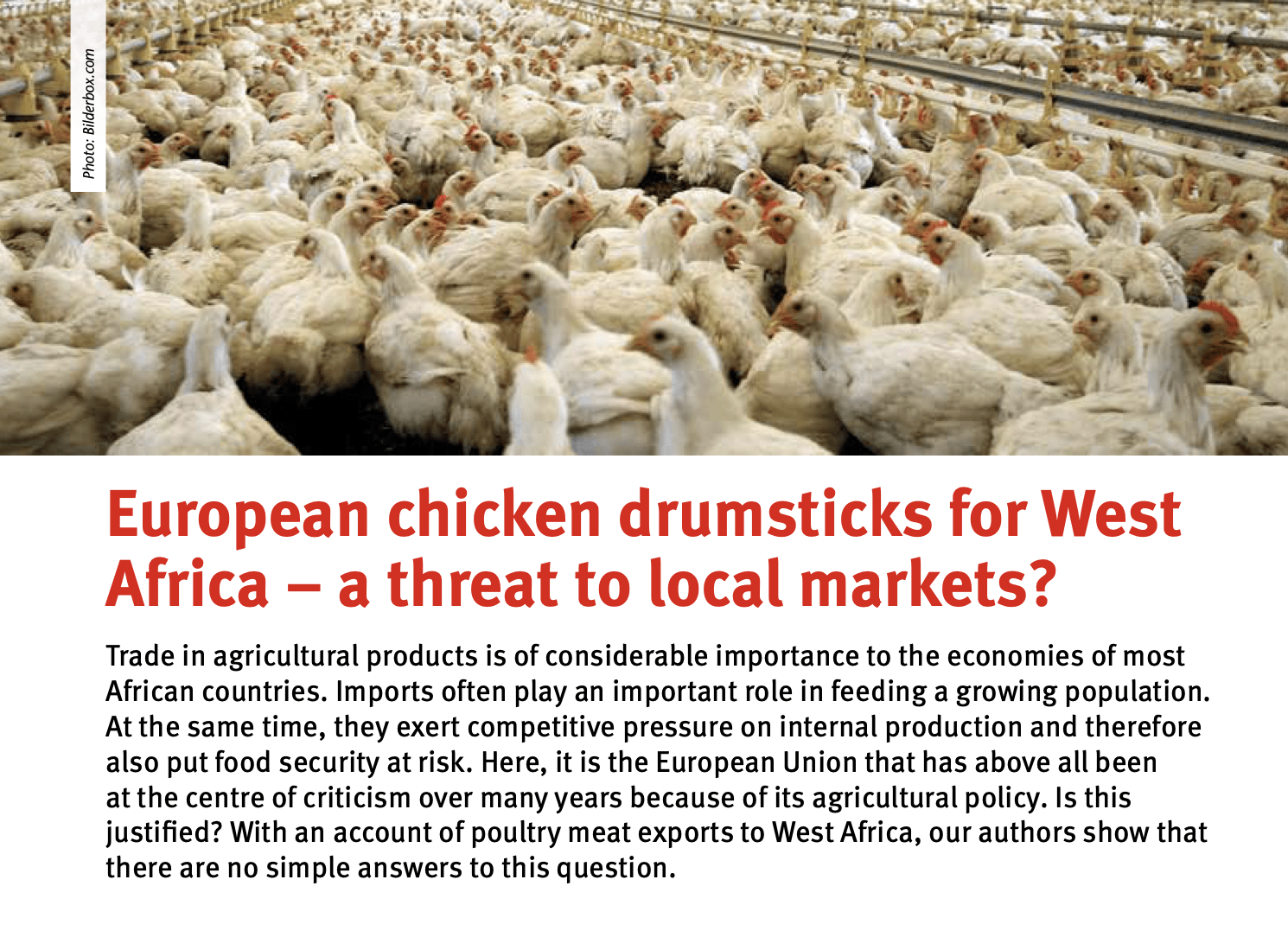︎

Bettina Rudloff
German Institute for International and Security Affairs (SWP)
Bettina Rudloff is an agricultural engineer and holds a PhD in agricultural economics. She started her research work on trade, agriculture and development at the European Institute of Public Administration (EIPA), Maastricht, the Netherlands. During that time, she led mid-term vocational training programmes of the EU Commission for developing countries‘ WTO negotiators, and consulted agricultural officials of Mediterranean partner countries and EU officials on trade, agriculture and fisheries. After a subsequent Assistant Professorship at the Institute for Food and Ressource Economis/University of Bonn, she became Senior Associate at the German Institute for International and Security Affairs in 2008. Here she works on EU trade and investment rules at all levels of regulatory regimes, i.e. multi-, and bilateral agreements, supplementing initiatives such as voluntary partnership agreements and analysing the scope for tariff and regulatory rules to support sustainability. More recently, she has been exploring the impacts of the EU’s Common Agricultural Policy (CAP) along the whole value chain on developing countries and has analyzed coherent approaches to support food systems resilience. She addresses different agricultural value chains, most recently soy, palm oil, and cocoa.
MORE ABOUT BETTINA RUDLOFF >Apr 8, 2024
Öffentliche Vorlesungsreihe: Unternehmerische Sorgfaltspflichten im Agrar- und Ernährungssektor
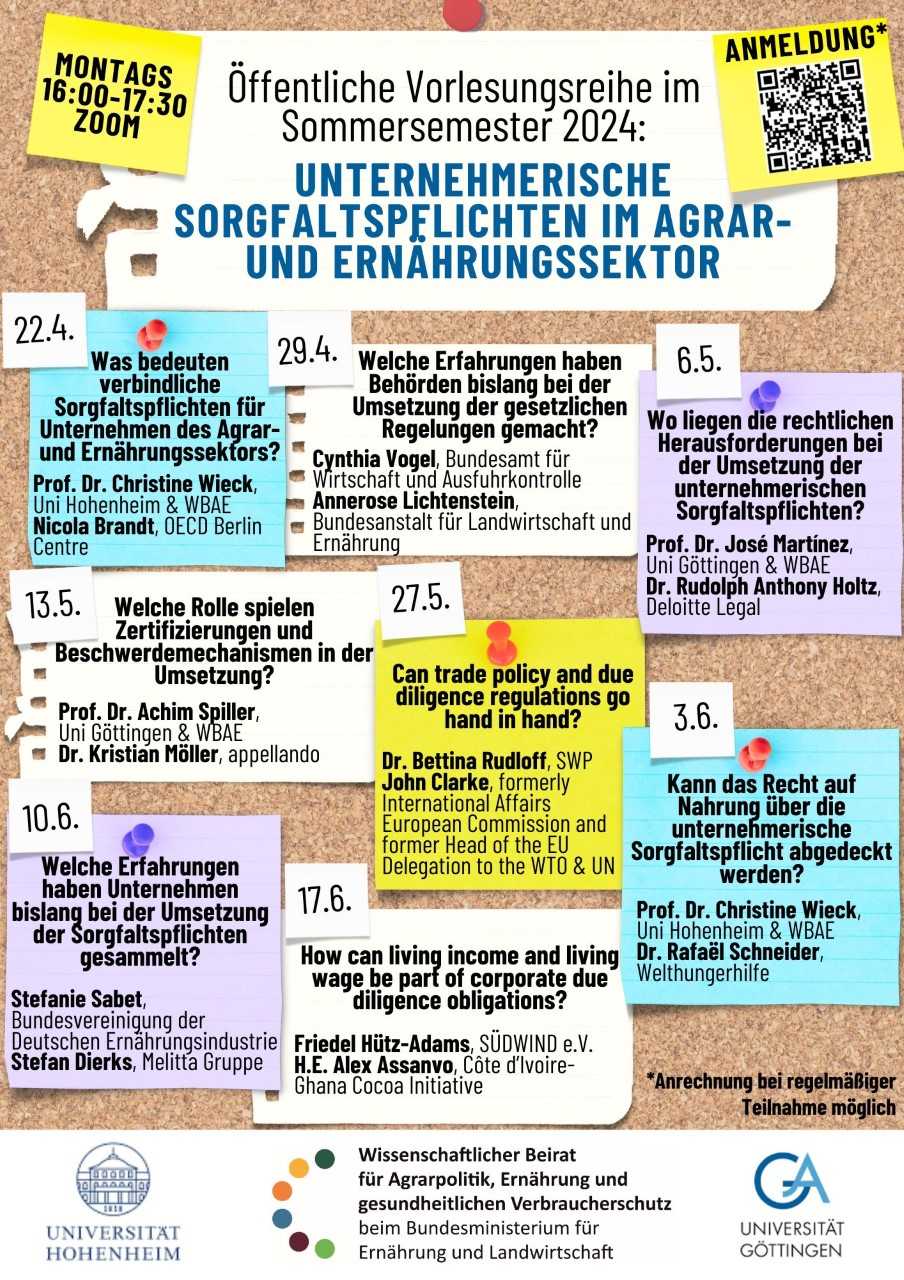
Feb 26, 2024
Mehmet Sait Akman, Fabrizio Botti, Clara Brandi, Michael Brüntrup, Markus Dietrich, Ilaria Espa, Andreas Freytag, Robert Koopman, Stormy-Annika Mildner, Bettina Rudloff
Sustainable and resilient agricultural value chains: Addressing multiple vulnerabilities with a new partnership approach
The ongoing Covid-19 pandemic and the war in Ukraine meet longer-term impacts of climate change and no-less pressing challenges of social and environmental sustainability in and around agriculture, food and nutrition security.
Many international mechanisms are already in place for agriculture and f...
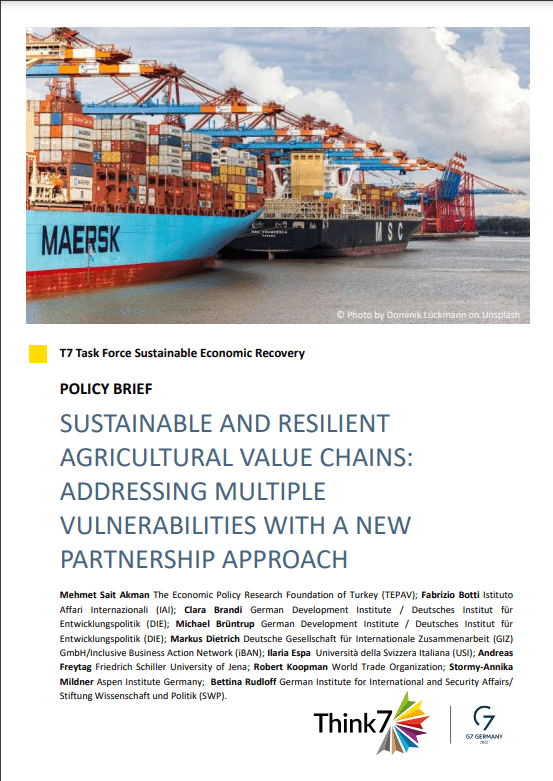
Jun 28, 2022
Bettina Rudloff
Sustainable international value chains: The EU’s new due diligence approach as part of a policy mix
A new family of regulatory approaches affecting international value chains has been initiated recently, mainly by developed countries, the Due Diligence Laws (DDLs). These new approaches are an addition to already existing (and partially) older trade measures that have already been adapted in the pa...
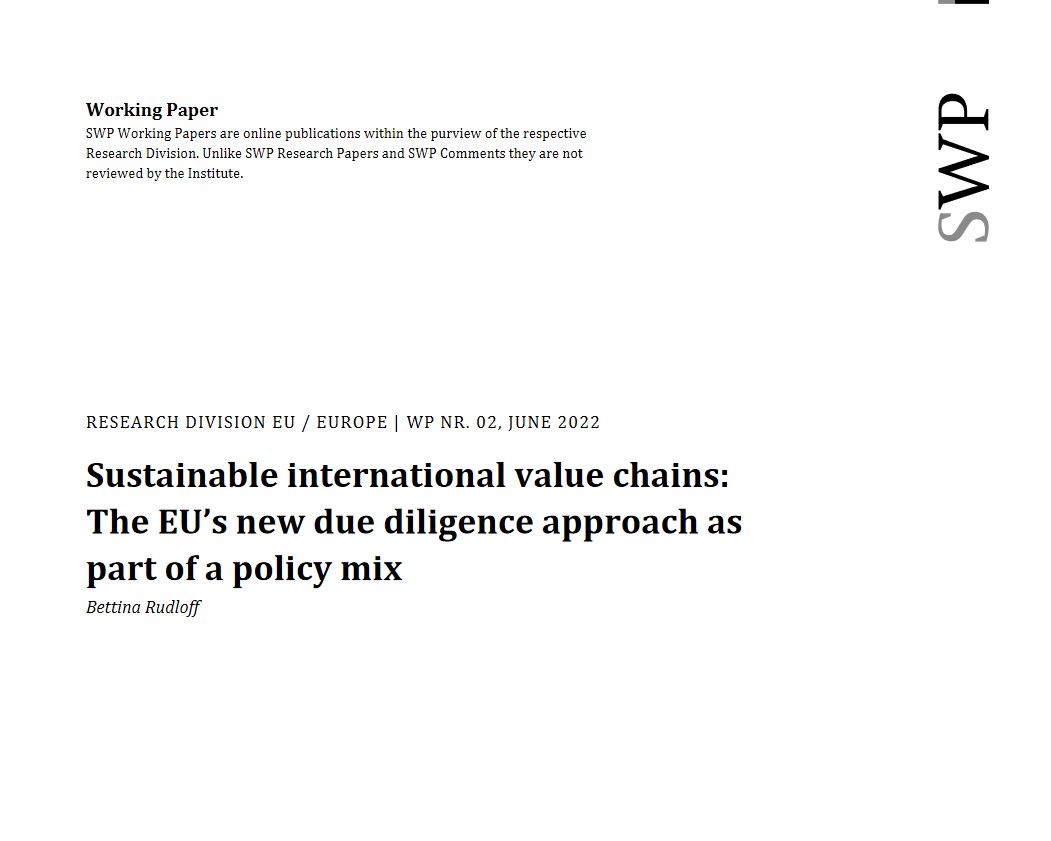
Nov 25, 2021
Katharina Löhr, Bujar Aruqaj, Daniel Baumert, Michelle Bonatti, Michael Brüntrup, Christian Bunn, Augusto Castro-Nunez, Giovanna Chavez-Miguel, Martha Lilia Del Rio, Samyra Hachmann, Héctor Camilo Morales Muñoz, Franziska Ollendorf, Tatiana Rodriguez, Bettina Rudloff, Johannes Schorling, Arne Schuffenhauer, Ingrid Schulte, Stefan Sieber, Sophia Tadesse, Christian Ulrichs, Claudia Vogel and Michael Weinhardt
Social Cohesion as the Missing Link between Natural Resource Management and Peacebuilding: Lessons from Cocoa Production in Côte d’Ivoire and Colombia
Social cohesion plays a key role in processes of peacebuilding and sustainable development. Fostering social cohesion might present a potential to enhance the connection of natural resource management and peacebuilding and better functioning of sustainable land use systems. This contribution explore...


Jun 25, 2021
Bettina Rudloff
Supply chain legislation: “The EU’s general principle is to support, not to punish
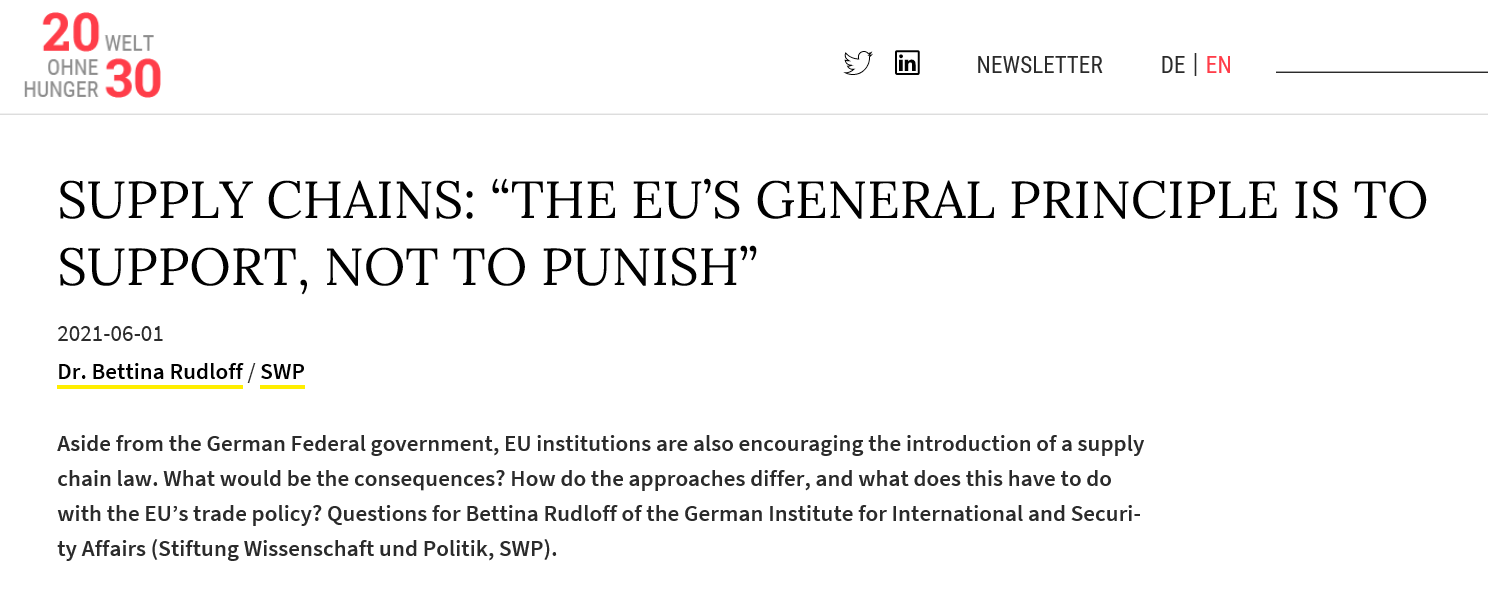
Jan 1, 2020
Bettina Rudloff, Christine Wieck
Sustainable Supply Chains in the Agricultural Sector: Adding Value Instead of Just Exporting Raw Materials
The corona pandemic has placed supply chains back on the agenda. The economic repercussions spotlight the complexity of today’s global division of labour. Current German and European initiatives are seeking to tighten the responsibility of final business consumers for human rights and sustainabili...
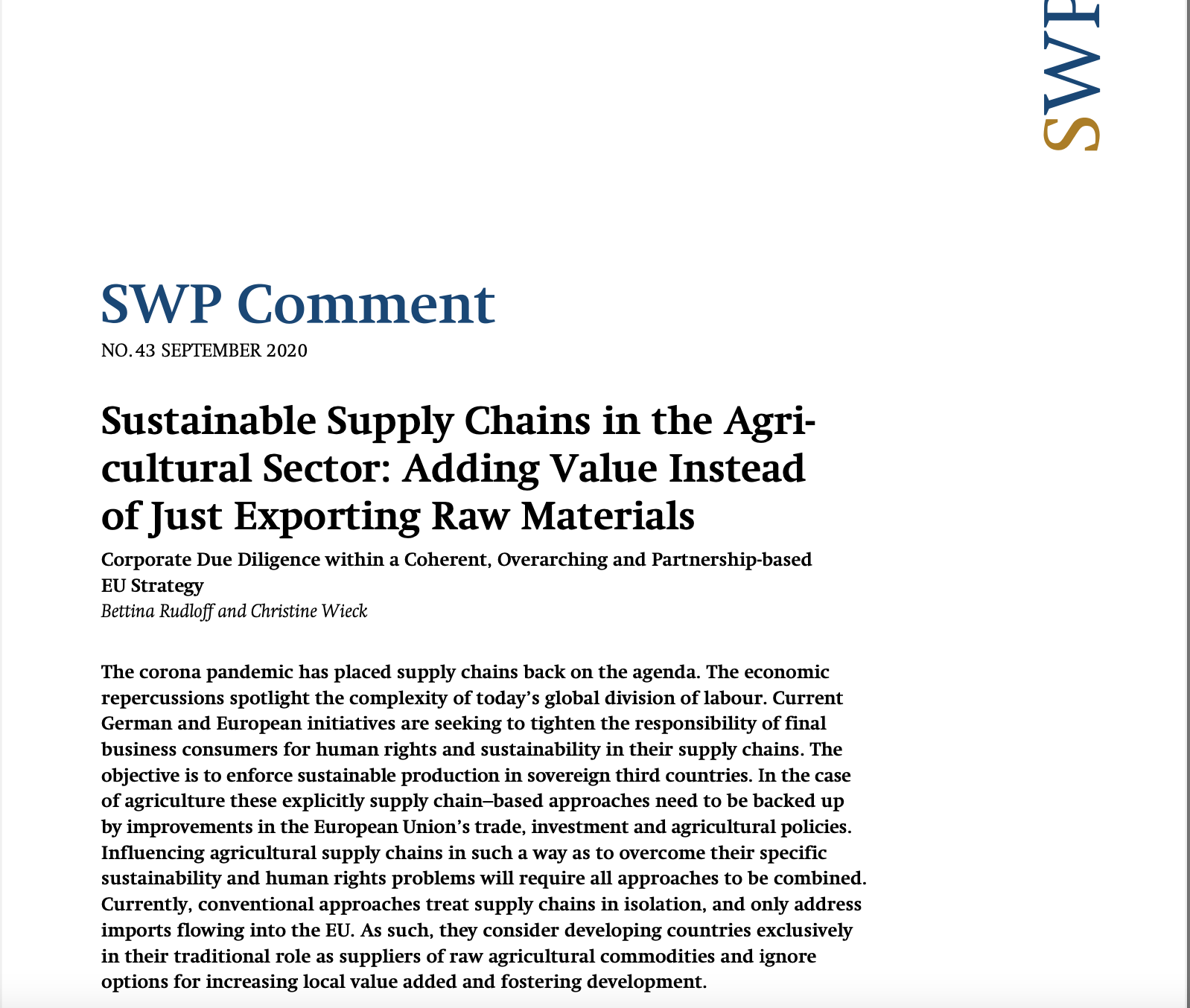
Jan 1, 2020
Bettina Rudloff
A Stable Countryside for a Stable Country? The Effects of a DCFTA with the EU on Tunisian Agriculture
Agriculture is central to the stability of Tunisia’s economy and society. The new Deep and Comprehensive Free Trade Agreement (DCFTA) under negotiation with the EU offers opportunities for the agricultural sector, but also presents risks for the country as a whole. Within Tunisia there is strong e...
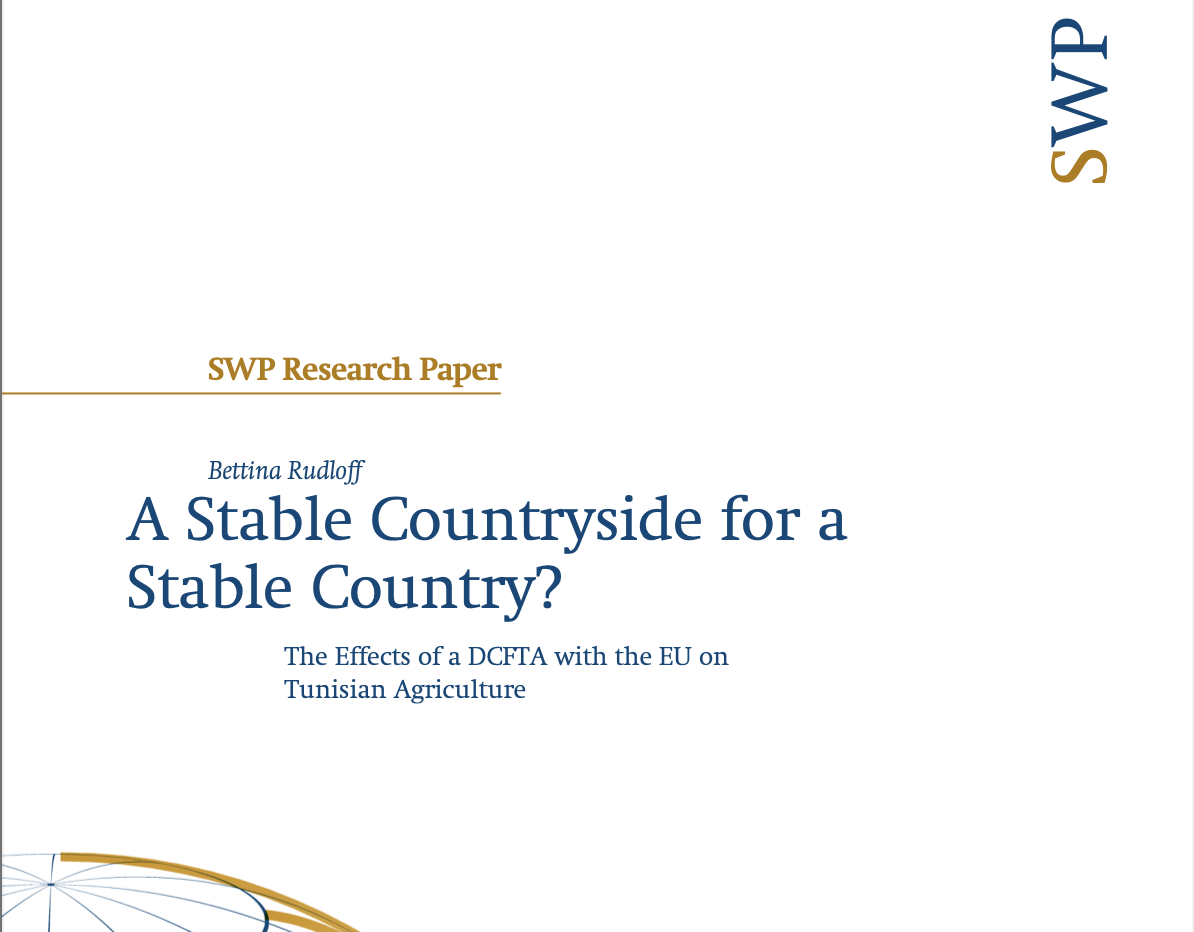
Jan 1, 2017
Bettina Rudloff, Evita Schmieg
European chicken drumsticks for West Africa – a threat to local markets?
Trade in agricultural products is of considerable importance to the economies of most African countries. Imports often play an important role in feeding a growing population. At the same time, they exert competitive pressure on internal production and therefore also put food security at risk. Here, ...
